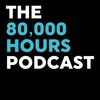

80,000 Hours Podcast
Rob, Luisa, and the 80000 Hours team
Unusually in-depth conversations about the world's most pressing problems and what you can do to solve them.
Subscribe by searching for '80000 Hours' wherever you get podcasts.
Hosted by Rob Wiblin and Luisa Rodriguez.
Subscribe by searching for '80000 Hours' wherever you get podcasts.
Hosted by Rob Wiblin and Luisa Rodriguez.
Episodes
Mentioned books

109 snips
Dec 27, 2024 • 2h 50min
2024 Highlightapalooza! (The best of The 80,000 Hours Podcast this year)
"A shameless recycling of existing content to drive additional audience engagement on the cheap… or the single best, most valuable, and most insight-dense episode we put out in the entire year, depending on how you want to look at it." — Rob WiblinIt’s that magical time of year once again — highlightapalooza! Stick around for one top bit from each episode, including:How to use the microphone on someone’s mobile phone to figure out what password they’re typing into their laptopWhy mercilessly driving the New World screwworm to extinction could be the most compassionate thing humanity has ever doneWhy evolutionary psychology doesn’t support a cynical view of human nature but actually explains why so many of us are intensely sensitive to the harms we cause to othersHow superforecasters and domain experts seem to disagree so much about AI risk, but when you zoom in it’s mostly a disagreement about timingWhy the sceptics are wrong and you will want to use robot nannies to take care of your kids — and also why despite having big worries about the development of AGI, Carl Shulman is strongly against efforts to pause AI research todayHow much of the gender pay gap is due to direct pay discrimination vs other factorsHow cleaner wrasse fish blow the mirror test out of the waterWhy effective altruism may be too big a tent to work wellHow we could best motivate pharma companies to test existing drugs to see if they help cure other diseases — something they currently have no reason to bother with…as well as 27 other top observations and arguments from the past year of the show.Check out the full transcript and episode links on the 80,000 Hours website.Remember that all of these clips come from the 20-minute highlight reels we make for every episode, which are released on our sister feed, 80k After Hours. So if you’re struggling to keep up with our regularly scheduled entertainment, you can still get the best parts of our conversations there.It has been a hell of a year, and we can only imagine next year is going to be even weirder — but Luisa and Rob will be here to keep you company as Earth hurtles through the galaxy to a fate as yet unknown.Enjoy, and look forward to speaking with you in 2025!Chapters:Rob's intro (00:00:00)Randy Nesse on the origins of morality and the problem of simplistic selfish-gene thinking (00:02:11)Hugo Mercier on the evolutionary argument against humans being gullible (00:07:17)Meghan Barrett on the likelihood of insect sentience (00:11:26)Sébastien Moro on the mirror test triumph of cleaner wrasses (00:14:47)Sella Nevo on side-channel attacks (00:19:32)Zvi Mowshowitz on AI sleeper agents (00:22:59)Zach Weinersmith on why space settlement (probably) won't make us rich (00:29:11)Rachel Glennerster on pull mechanisms to incentivise repurposing of generic drugs (00:35:23)Emily Oster on the impact of kids on women's careers (00:40:29)Carl Shulman on robot nannies (00:45:19)Nathan Labenz on kids and artificial friends (00:50:12)Nathan Calvin on why it's not too early for AI policies (00:54:13)Rose Chan Loui on how control of OpenAI is independently incredibly valuable and requires compensation (00:58:08)Nick Joseph on why he’s a big fan of the responsible scaling policy approach (01:03:11)Sihao Huang on how the US and UK might coordinate with China (01:06:09)Nathan Labenz on better transparency about predicted capabilities (01:10:18)Ezra Karger on what explains forecasters’ disagreements about AI risks (01:15:22)Carl Shulman on why he doesn't support enforced pauses on AI research (01:18:58)Matt Clancy on the omnipresent frictions that might prevent explosive economic growth (01:25:24)Vitalik Buterin on defensive acceleration (01:29:43)Annie Jacobsen on the war games that suggest escalation is inevitable (01:34:59)Nate Silver on whether effective altruism is too big to succeed (01:38:42)Kevin Esvelt on why killing every screwworm would be the best thing humanity ever did (01:42:27)Lewis Bollard on how factory farming is philosophically indefensible (01:46:28)Bob Fischer on how to think about moral weights if you're not a hedonist (01:49:27)Elizabeth Cox on the empirical evidence of the impact of storytelling (01:57:43)Anil Seth on how our brain interprets reality (02:01:03)Eric Schwitzgebel on whether consciousness can be nested (02:04:53)Jonathan Birch on our overconfidence around disorders of consciousness (02:10:23)Peter Godfrey-Smith on uploads of ourselves (02:14:34)Laura Deming on surprising things that make mice live longer (02:21:17)Venki Ramakrishnan on freezing cells, organs, and bodies (02:24:46)Ken Goldberg on why low fault tolerance makes some skills extra hard to automate in robots (02:29:12)Sarah Eustis-Guthrie on the ups and downs of founding an organisation (02:34:04)Dean Spears on the cost effectiveness of kangaroo mother care (02:38:26)Cameron Meyer Shorb on vaccines for wild animals (02:42:53)Spencer Greenberg on personal principles (02:46:08)Producing and editing: Keiran HarrisAudio engineering: Ben Cordell, Milo McGuire, Simon Monsour, and Dominic ArmstrongVideo editing: Simon MonsourTranscriptions: Katy Moore
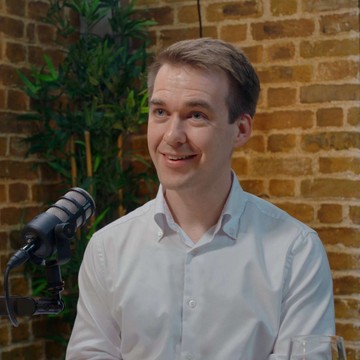
182 snips
Dec 19, 2024 • 3h 26min
#211 – Sam Bowman on why housing still isn't fixed and what would actually work
In this insightful discussion, economist Sam Bowman, editor of Works in Progress and a housing policy expert, addresses the current housing crisis exacerbated by 'NIMBY' politics. He argues that political obstacles, not technological barriers, are the main culprits behind stagnation. Sam proposes innovative solutions like 'street votes' for community engagement and highlights the importance of compensating affected residents in urban development. He also critiques outdated regulations that hinder progress while showcasing global housing strategies to inspire change.
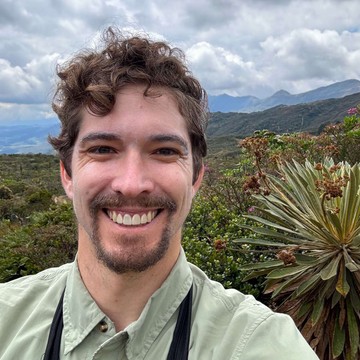
77 snips
Nov 29, 2024 • 3h 21min
#210 – Cameron Meyer Shorb on dismantling the myth that we can’t do anything to help wild animals
Cameron Meyer Shorb, executive director of the Wild Animal Initiative, dives into the urgent need for wild animal welfare. He reveals the staggering number of wild animals and the unseen suffering they endure from diseases and predation. Shorb discusses innovative interventions, like selective reforestation and vaccinations, highlighting the balance of aiding animals without disrupting ecosystems. He also addresses the ethical dilemmas in wildlife management, urging for a more compassionate approach to research that enhances both animal welfare and ecosystem resilience.

15 snips
Nov 27, 2024 • 1h 22min
#209 – Rose Chan Loui on OpenAI’s gambit to ditch its nonprofit
In this insightful discussion, Rose Chan Loui, a nonprofit legal expert from UCLA Law, analyzes OpenAI's dramatic shift from a nonprofit to a for-profit model. She emphasizes the potential ethical dilemmas and governance challenges facing OpenAI as it prioritizes profit over its original mission. The conversation highlights the struggles of a small volunteer board against a tech giant’s profit motives, the importance of maintaining transparency, and how legal frameworks may play a crucial role in ensuring that AI development benefits humanity.

43 snips
Nov 21, 2024 • 2h 22min
#208 – Elizabeth Cox on the case that TV shows, movies, and novels can improve the world
Elizabeth Cox, founder of Should We Studio and former TED-Ed producer, advocates for storytelling as a powerful tool for societal change. She discusses how different media formats, like TV and animation, can effectively tackle complex issues. The conversation touches on storytelling's impact on public perception, especially regarding topics like climate change and ethical dilemmas. They also explore the implications of AI on creativity, the importance of audience engagement, and insights from her animated series 'Ada' that addresses transformative technologies.
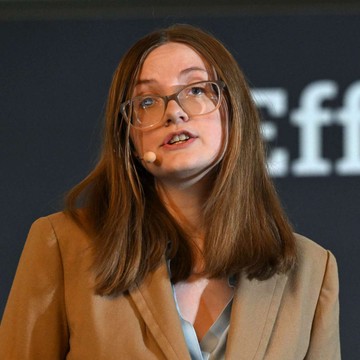
19 snips
Nov 14, 2024 • 2h 59min
#207 – Sarah Eustis-Guthrie on why she shut down her charity, and why more founders should follow her lead
Sarah Eustis-Guthrie, cofounder of the now-closed Maternal Health Initiative in Ghana, shares her heartfelt journey through founding and shutting down a charity. She discusses the emotional toll of accountability and the difficult decision to close when impact fell short. The conversation reveals the significance of transparency in charity work, the complexities of postpartum family planning, and the challenges of distinguishing genuine insights from misconceptions in developing healthcare programs. Sarah emphasizes the need for reevaluation and adaptability in the nonprofit sector.
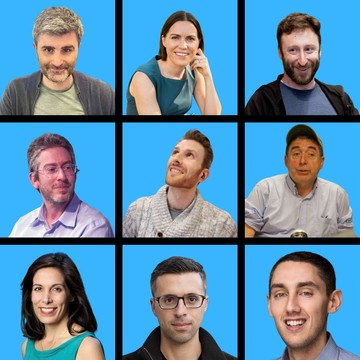
61 snips
Nov 8, 2024 • 1h 36min
Parenting insights from Rob and 8 past guests
Join notable guests like Ezra Klein, a journalist whose insights on parenting reveal the unexpected joys of raising kids, and Emily Oster, an economist sharing data-driven advice for family life. Holden Karnofsky discusses the surprise fun of parenthood, while Bryan Caplan reflects on homeschooling. The conversation explores the complexities of parental happiness, the reality of balancing work and family, and the everyday joys of connecting with children. Dive into evidence-based insights and personal anecdotes for a richer understanding of modern parenting.
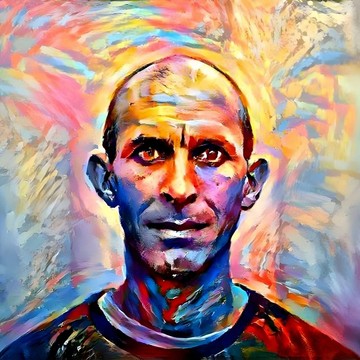
86 snips
Nov 1, 2024 • 2h 34min
#206 – Anil Seth on the predictive brain and how to study consciousness
Anil Seth, a neuroscientist and director at the Sussex Centre for Consciousness Science, delves into what makes us conscious. He presents the idea that perception is a 'controlled hallucination' shaped by our brain's predictions. The discussion tackles intriguing topics like the phenomenon of blindsight and the implications of split-brain studies. Seth suggests that consciousness in animals—and even machines—may reflect our own. His excitement for future research reveals the mysteries still surrounding the nature of consciousness.
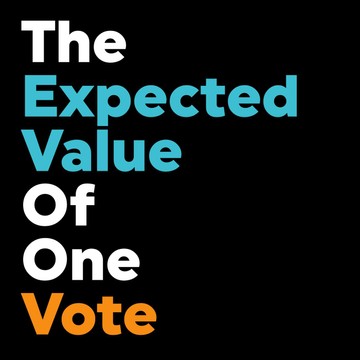
Oct 28, 2024 • 33min
How much does a vote matter? (Article)
Delve into the power of a single vote and its potential to influence election outcomes. Explore the importance of being informed and the challenges that come with making a decision at the polls. Discover arguments against voting, including the risks of choosing the wrong candidate and the effort required for adequate political knowledge. Learn about alternative ways to make an impact, like donating to campaigns or driving voter turnout, and understand the broader implications that elected officials have on society and governance.
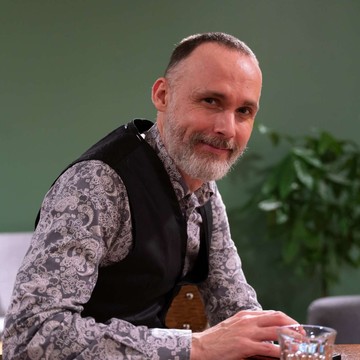
15 snips
Oct 23, 2024 • 3h 11min
#205 – Sébastien Moro on the most insane things fish can do
Sébastien Moro, a science writer and video blogger known for his work on animal cognition, dives into the extraordinary intelligence of fish. He discusses surprising fish abilities, such as memory, problem-solving, and even self-recognition. Moro reveals that some fish outperform primates in cognitive tests and have complex social structures, including pair bonding and cooperation. He also explores the emotional lives of fish, emphasizing their capacity for pain and social learning, challenging our perceptions of underwater minds.


